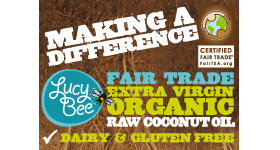|
|
Both organic and spoiled food is better for you than you thought |
A study at the Plant Biology Institute at Belgium's University of Liege suggests that most fruits and vegetables don't lose their antioxidants when they start to look bad. (Source: Kevers, C. Journal of Agricultural and Food Chemistry, Oct. 17, 2007; vol 55: pp 8589-8595)
Click here for LINKS to manufacturers of nutrition and food supplements. |








